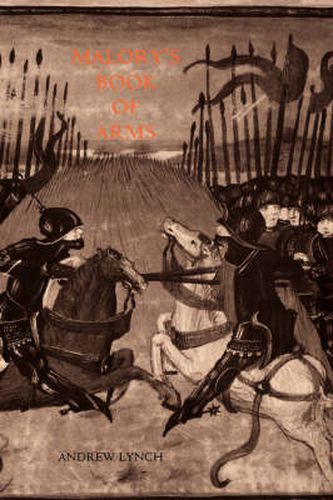Readings Newsletter
Become a Readings Member to make your shopping experience even easier.
Sign in or sign up for free!
You’re not far away from qualifying for FREE standard shipping within Australia
You’ve qualified for FREE standard shipping within Australia
The cart is loading…






This study of Sir Thomas Malory’s Le Morte Darthur centres on its main narrative interest and expressive medium, armed combat. In the analysis of the discourse of fighting, some repeated descriptive preoccupations -to do with name, vision, blood, emotion and gesture - are examined as needs of meaning with relevance for the whole text, and related to political, religious, genealogical, sexual and medical views of Malory’s period.
Andrew Lynch’s exploration of the power of name as public reputation in the Morte challenges the usual reading of Malory’s adventures, and he goes on to survey Malory reception and the attempts of earlier critics to moralise the fights in terms he sees as inappropriate. His discussion of the narrative vision and thematics of combat covers the whole text, but places special emphasis on the stories of knight-errantry, and particularly the often neglected Book of Sir Tristram.
ANDREW LYNCH is Senior Lecturer in English at the University of Western Australia.
$9.00 standard shipping within Australia
FREE standard shipping within Australia for orders over $100.00
Express & International shipping calculated at checkout
This study of Sir Thomas Malory’s Le Morte Darthur centres on its main narrative interest and expressive medium, armed combat. In the analysis of the discourse of fighting, some repeated descriptive preoccupations -to do with name, vision, blood, emotion and gesture - are examined as needs of meaning with relevance for the whole text, and related to political, religious, genealogical, sexual and medical views of Malory’s period.
Andrew Lynch’s exploration of the power of name as public reputation in the Morte challenges the usual reading of Malory’s adventures, and he goes on to survey Malory reception and the attempts of earlier critics to moralise the fights in terms he sees as inappropriate. His discussion of the narrative vision and thematics of combat covers the whole text, but places special emphasis on the stories of knight-errantry, and particularly the often neglected Book of Sir Tristram.
ANDREW LYNCH is Senior Lecturer in English at the University of Western Australia.